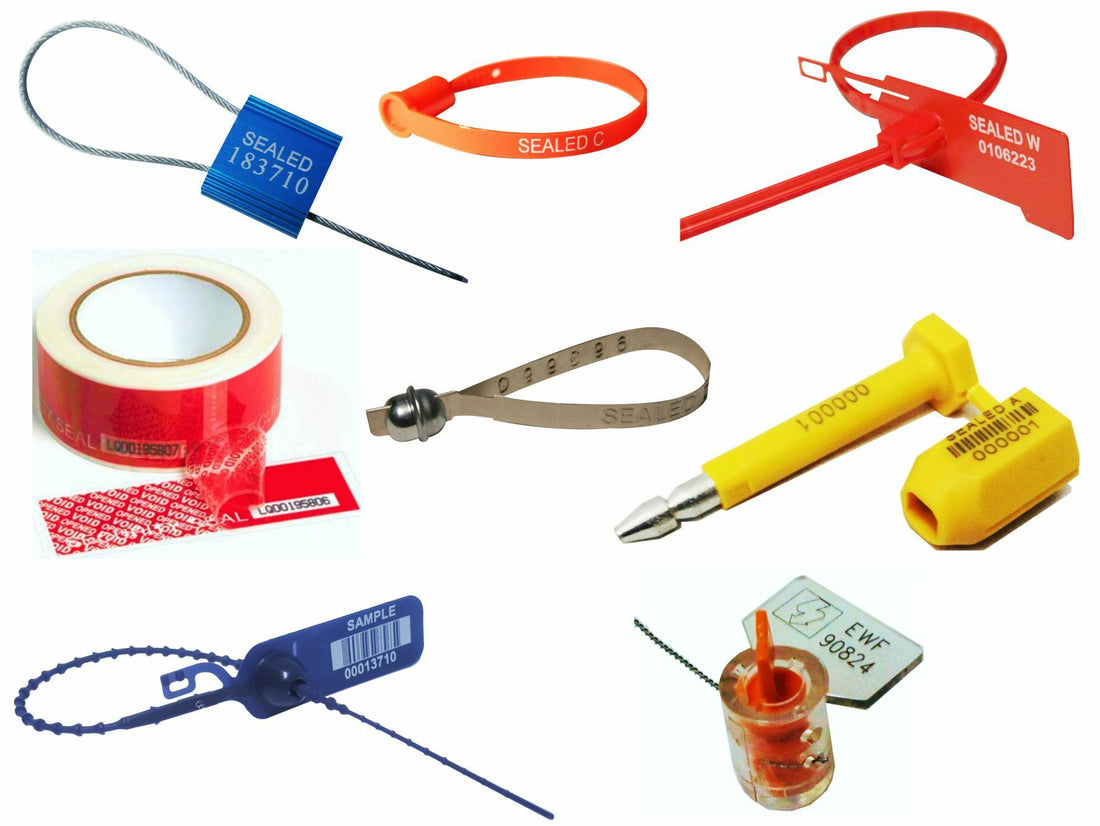Have you noticed those little seals on boxes or containers when things are shipped? Those are called security seals. Their job is to keep your goods safe and secure during travel. In this post, I'll explain what security seals do and how to choose a good one for your needs.
What are Security Seals?
High Security seals are special locking devices used to seal boxes, packages, containers or any enclosed space. They are designed to show visible signs if someone tries to open or tamper with the sealed item. If a seal is broken, torn or says "VOID", you know the contents may have been accessed.
Why are Security Seals Important? Security seals serve several purposes:
- Deterring Theft: The presence of a security seal can discourage potential thieves from attempting to break into a container or package, as they know it will leave evidence of tampering.
- Detecting Tampering: If someone does try to open a sealed container or package, the security seal will show signs of tampering, such as breaking, tearing, or leaving a "VOID" message.
- Ensuring Traceability: Many security seals have unique identification numbers, allowing you to track and verify the seal's authenticity throughout the supply chain.
- Maintaining Product Integrity: In some cases, security seals are used to ensure that products remain in their original condition, preventing unauthorized access or contamination.
Picking a Good Security Seal
With so many security seal options, how do you choose? Consider these factors:
- Level of Security: Determine the level of security you need based on the value and sensitivity of your goods. High-value or sensitive items may require "high security seals" with advanced tamper-evident features, such as specialized materials or complex locking mechanisms.
- Environmental Conditions: Consider the conditions your goods will be exposed to during transportation or storage. Some seals are designed to withstand extreme temperatures, moisture, rough handling, or even chemical exposure.
- Ease of Use: Look for seals that are easy to apply and remove (when authorized), reducing the risk of accidental damage or tampering. Clear instructions and user-friendly designs can make a big difference.
- Compliance: If you're shipping internationally or within regulated industries, ensure that your chosen security seals meet any relevant industry standards or regulations, such as the ISO 17712 standard, which classifies seals based on their level of tamper resistance.
- Cost-effectiveness: While security is paramount, it's also important to consider the cost of the seals and ensure they fit within your budget. Striking the right balance between security and affordability is key.
Remember, even with the best high security seals, it's essential to follow proper handling procedures and maintain a secure supply chain to protect your goods. Regular training, vigilance, and adherence to best practices can further enhance the effectiveness of your security measures.

